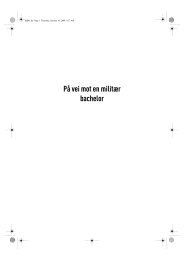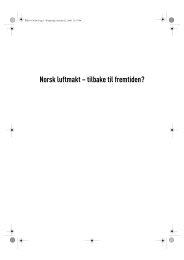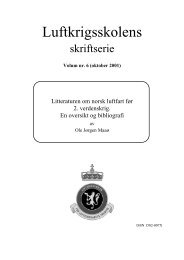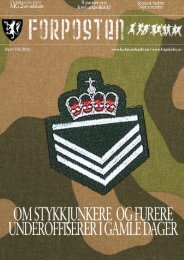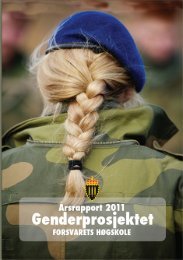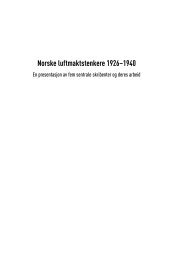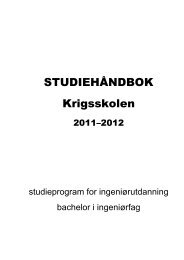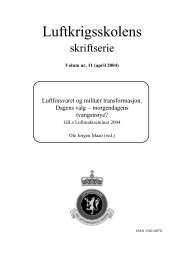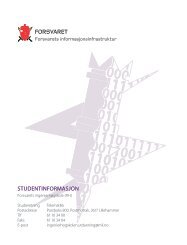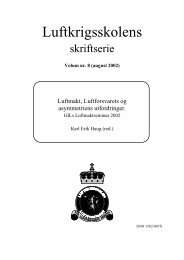Wilhelm Mohr
Wilhelm Mohr
Wilhelm Mohr
You also want an ePaper? Increase the reach of your titles
YUMPU automatically turns print PDFs into web optimized ePapers that Google loves.
PART II – The Ground Crews’ Participation in the War on the Continent 1944/45<br />
After their experiences at B16, the personnel were apprehensive about<br />
eating fruit and vegetables.<br />
After B57 at Lille, the situation improved significantly. The city itself<br />
and the opportunity to meet its population were a source of encouragement.<br />
The diet became more varied, even though the basis for it<br />
remained. Everything influenced vitality and mood. At B60, which was<br />
located at Grimbergen close to Brussels, the situation was the same, but<br />
by then October had arrived with autumn rain and increasing cold.<br />
I doubt that there was anyone who could match the Norwegian<br />
ground crews in terms of initiative and inventiveness to improve the<br />
situation. The eight-man tents came without flooring, leaks were inevitable,<br />
and mud from outside soon became part of the mattresses. B60<br />
Grimbergen was a mud pit, and laundry, drying and personal hygiene<br />
became a problem of significant dimensions. Despite this, the strangest<br />
washing arrangements were invented, some even with ingenious mechanisms<br />
for heating. After a while the tents were furnished with various<br />
formwork, such as wooden boards for flooring. Some types of oven were<br />
constructed to be fuelled by waste oil, as this was the most natural and,<br />
in some respects, the most accessible energy source.<br />
The common slogan was ’those who help themselves …’, and the<br />
approach worked. When one was able to shake off the cold at dawn,<br />
a smile was not far away. On occasions, one was able to make a short<br />
visit to Brussels. Regardless, the aircraft received the necessary maintenance,<br />
rockets were fitted, and bombs and ammunition loaded. In a<br />
sense, the difficulties were made up for by the results and advances.<br />
Also, the aircraft could reach targets in Germany proper. This signified<br />
that the war had to end soon, but it was not to go quite as smoothly as<br />
everyone had hoped.<br />
The German Ardennes offensive started on 16 December and they<br />
advanced rapidly towards Brussels from the south. The German offensive<br />
benefitted from poor weather that significantly limited Allied air<br />
support for its own defence forces. Information about a large gathering<br />
of German aircraft arrived, which required increased alertness. The<br />
Allied leadership believed, however, that the Ardennes offensive could<br />
be wound up and continued the pressure eastwards.<br />
89



